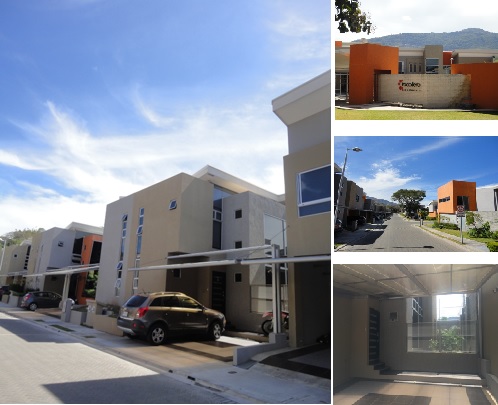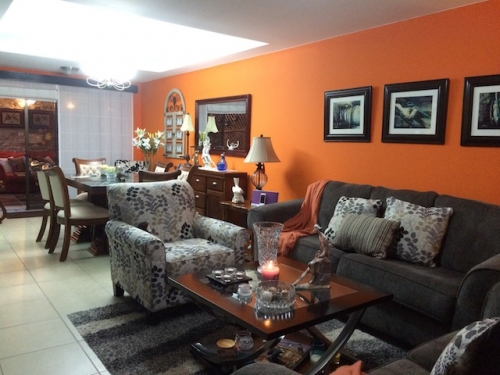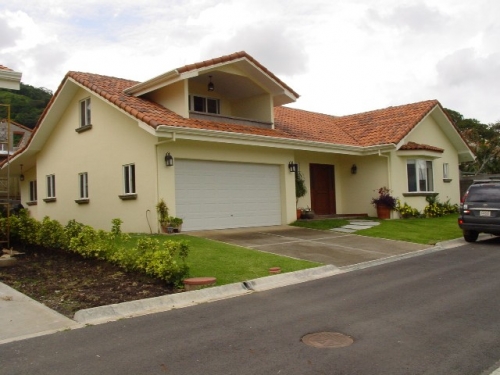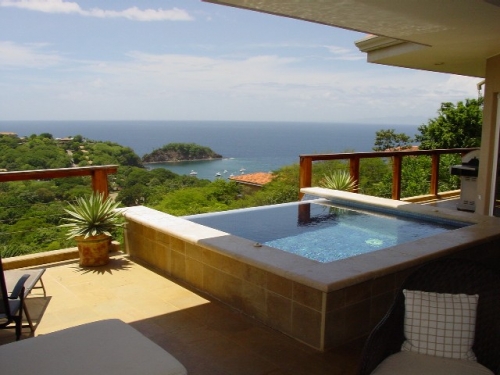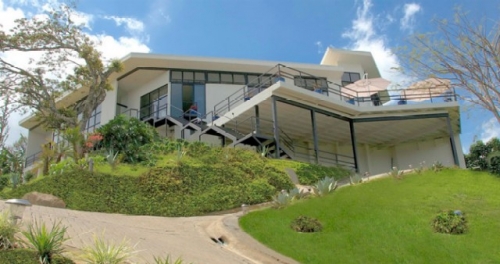Costa Rica Guide
Costa Rica Real Estate
List your property today!
Inclusion of real estate listings at Costa Rica Guide is
absolutely free of charge.
Featured Properties
Costa Rica Guide - Costa Rica Real Estate
The Search For Value And Adventure
Where to Retire
Americans find the good life in Costa Rica
Then there's that perennial draw: Florida
Series: The New Retiree
IBD Special Report
Donna Howell
Investor's Business Daily
February 26, 2004
Few couples retire as adventurously as Randy and Rhonda Berg. They left Minnesota winters for Costa Rica, where the temperatures hover from the 50s to the 80s year-round.
The factors they looked at before moving -- from costs to crime -- are good ones for anyone approaching retirement to consider.
"We actually looked at Mexico, Panama and Nicaragua seriously," said Randy Berg, 57, who sold his string of printing shops before heading south to Central America. "Panama was really too hot for us. We're in a central valley where we're up in the mountains, so it's perfect."
The Bergs also liked the stability of Costa Rica, a democracy since the 1950s. And the cost. Together Randy and Rhonda get health insurance for $100 a month. It's "excellent coverage," he said, and a fraction of what they'd spend in the U.S.
The Bergs spent several months scouting for the right spot and the best deal. They bought a patch of land with a dramatic view in the town of Grecia, not far from the city of San Jose with its international airport. The Bergs are also near Beverly Hills-style American enclaves. The house they're having built -- and are displaying on geocities.com/rhondarlbinc/costarica.html -- should be finished any day.
Americans have a rich history of retiring to a warm climate -- though usually not so far south. The trends show a search for good weather, value, a compelling lifestyle and proximity to family and friends.
First, there's a potential shocker for those eager to hit the road in their golden years.
"Most older persons don't move at all and in fact have a much lower rate of movement than younger people," said Andrew Kochera, a senior policy adviser for Washington, D.C.-based AARP, the nonprofit group that addresses interests of people 50-plus. "For persons age 55 and older, approximately 5% are going to move in any given year. By comparison, persons under age 55 are moving at a rate of 18% a year."
But one study of baby boomers by a home builder found half itching to move upon retirement. And Wake Forest University gerontologist Charles Longino says the tide of migrating retirees is set to swell.
"The baby boom is approaching retirement," said Longino. "It doesn't really matter much whether the proportion of the older population that's making moves declines. Their numbers will increase incredibly between 2010 and probably 2030 or 2040."
So where will all the retirees go? Community planners like those who built the legendary Sun City retirement mecca in Arizona in the late 1950s are staking their claim on new hot spots.
Judging by the 2000 census, Longino says, Florida still leads the pack in luring those 60 and up. About 395,000 moved into the state in the five years before the census. That's triple the number who moved to the next most popular state, Arizona.
After Arizona, retirees chose California, Texas, North Carolina and a newcomer to the top 10 -- Nevada.
"We have a terrific business in Nevada. It's one of our top-performing markets," said Dave Schreiner, a vice president at Pulte Homes Inc. in Bloomfield Hills, Mich.
Pulte runs a collection of 10 retirement communities across the U.S. in its Del Webb unit.
Many of the communities are under the Sun City brand name. Home prices range from $100,000 to more than $500,000.
"Nevada benefits from a tax situation that's very favorable to the older adult," Schreiner said. "And at last count, there were what, 40 million tourists a year? A lot of people are aware of Las Vegas."
Retiree wannabes muse, "Later on, I'll get a place in a nice small town," said gerontologist David Demko in Boca Raton, Fla. "They think about landscape, climate, quality of life, transportation."
Do many go international?
"People are considering that because your dollar does sometimes go further," he said. "People are going to some places in Western Europe, Poland, the Czech Republic and Mexico. A lot of people have been going to Costa Rica."
The strong euro has had some influence on location choices, Demko says. Those most likely to go abroad are "retired executives or wealthy individuals who have traveled and see themselves more as citizens of the world."
But often, when older Americans relocate, it's not far away from their home turf. Almost half of retirement-age people who move just go elsewhere in the same county.
"You hear the term "downsizing,' but it does not necessarily mean moving to a less expensive home. It does not even necessarily mean moving to a smaller home," said Kochera. "It means moving to a home that's easier to maintain."
Active retirees, he says, are often looking for more amenities.
"But as you think about the brand-name windows and counter tops, it's very good to start thinking about the architectural features of a home," Kochera said. "The no-step entrance, levered door handles, how easy it is to reach cabinets and so on. You can also start thinking about the community itself. How are the sidewalks, how safe and secure is it? How easy is it to get from home to nearby shopping?"
The idea is to promote "aging in place." Over the past decade or so, Kochera says, more homes have been built with retirement partly in mind. And there are more retirement-geared communities all over.
"There's become an awareness of that opportunity by firms like ours, who are building lifestyle-based communities in more locations to help people who don't necessarily want to move from New York to Florida," Schreiner said.
Residents get wide hallways, light switches in convenient locations, accessible baths and kitchens, and plenty of windows for light.
Planners for those 70 and up are also building communities in a variety of locations, not just the traditional hot spots.
Classic Residence by Hyatt, an affiliate of Chicago-based Hyatt Corp., runs upscale retirement communities that cater to this age group, which has extra health concerns. Home or condominium developments tend to have extra amenities like wellness centers, on-site cafeterias and restaurants, and low-maintenance surroundings.
Proximity to family is an important factor in retirement location choice, the experts say.
The Bergs took that into consideration when they moved. Their daughter is married to a Costa Rican. That means the Bergs have not only retired to a vacation spot; they're also close to family.
Copyright 2004 Investor's Business Daily, Inc.
Note: The above information is not to be used for any other purpose other than private study, research, criticism or review. Thank you.

